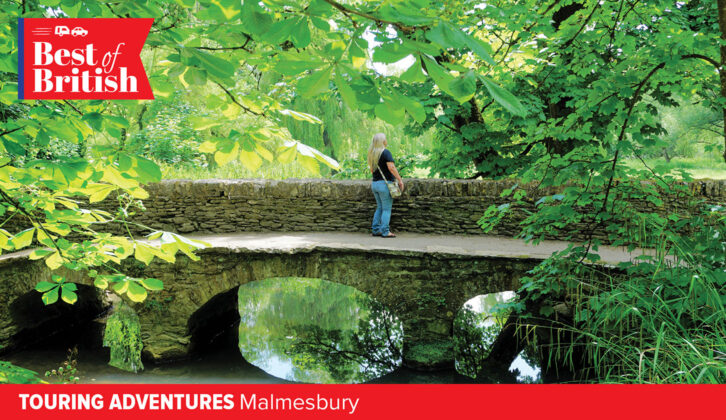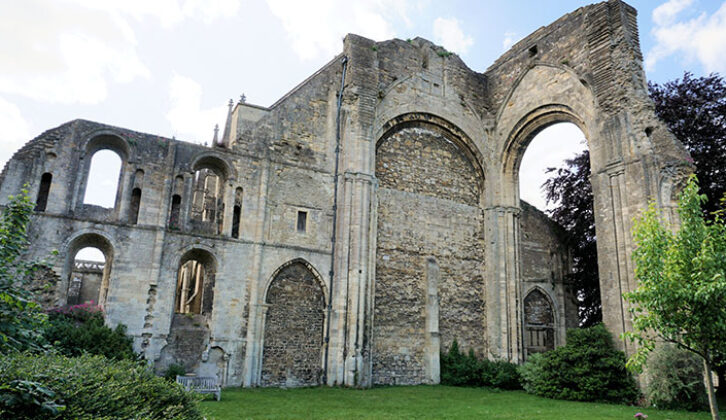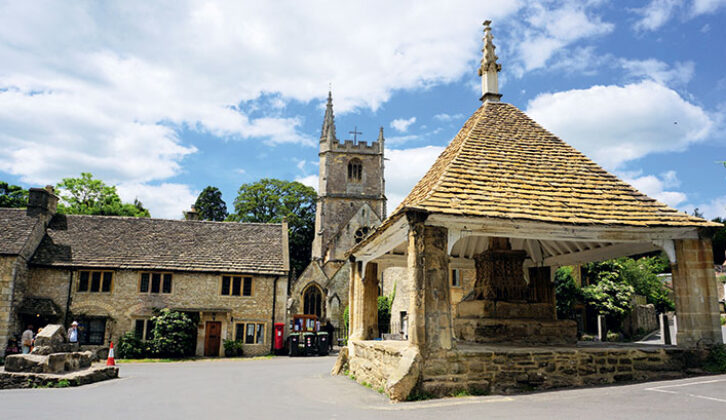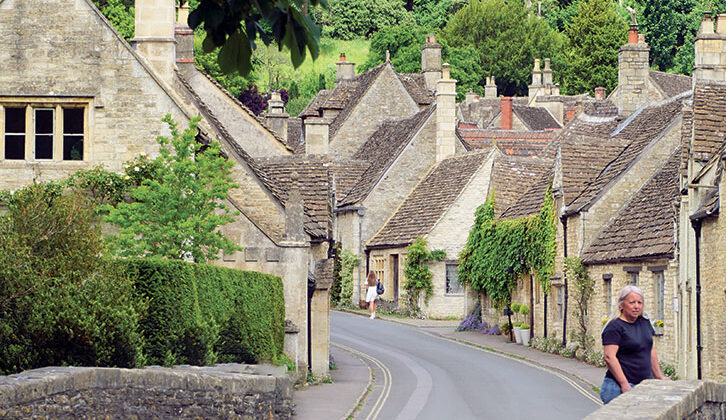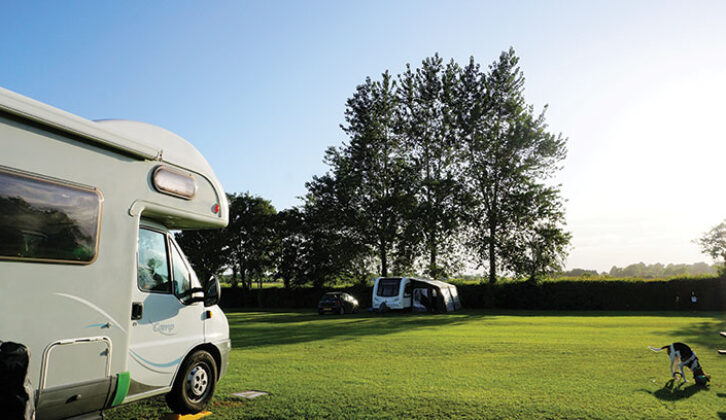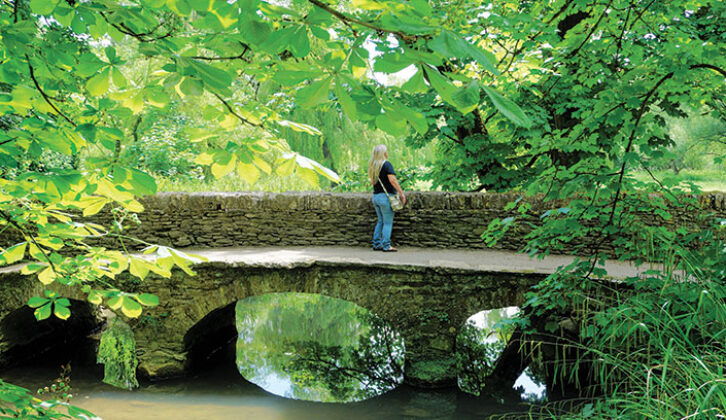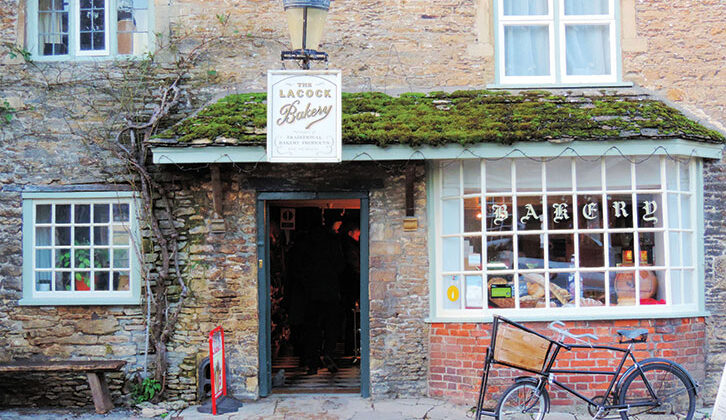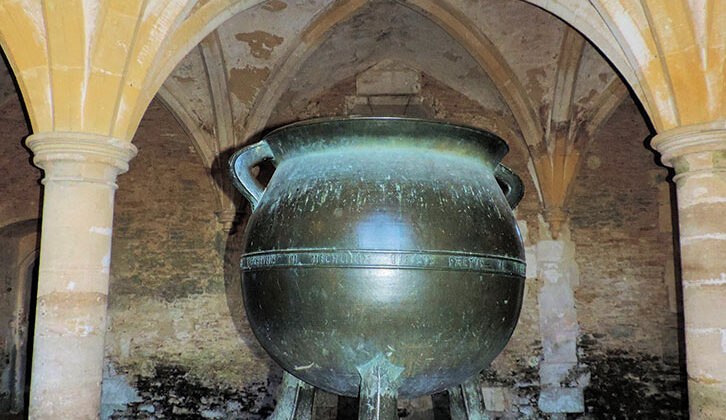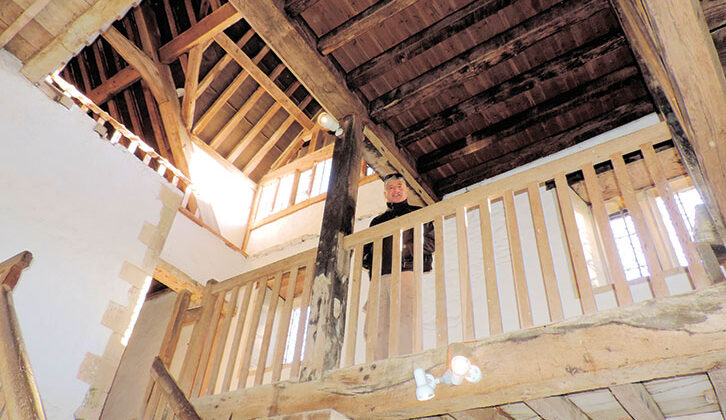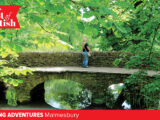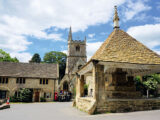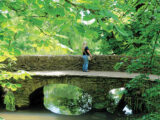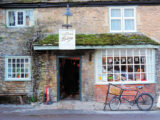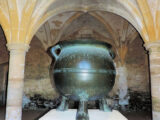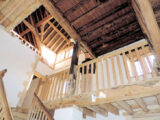Birthdays are better with surprises! Usually involving close family and friends of the birthday boy or girl. Maybe a cake or a special meal. And presents, definitely presents. Again, from family and friends to the lucky celebrant.
But when my husband, Ro, marked his birthday in June last year, he turned the tables. It was me who got the surprise, as he turned up at home one lunchtime waving a printout of an email – he was supposed to be working away for the week.
“I finished early,” he announced, before adding, “so I’ve booked us a few days away in the oldest place I could find.”
Now it’s normally me who does all of the touring research and chooses the campsite, so this was a surprise indeed.
Birthday dinner
Only fair, it was his birthday, to be spent however he preferred. I have to confess to some slight trepidation, though – what did he mean, the oldest place he could find? Where on earth were we going? And was this compensation for him becoming another year older himself?
It turned out he had booked us dinner in the oldest purpose-built hotel in England, in what is said to be the oldest continuously inhabited town in the country. And if this was how he wanted to celebrate, I certainly wasn’t complaining.
Malmesbury (the town in question) proved to be an easy drive from home, not that far from the M4, and Burton Hill Caravan & Camping Park offered what we always look for in the best caravan park, acting as a beautiful haven of tranquility on the banks of the River Avon, just perfect for relaxing.
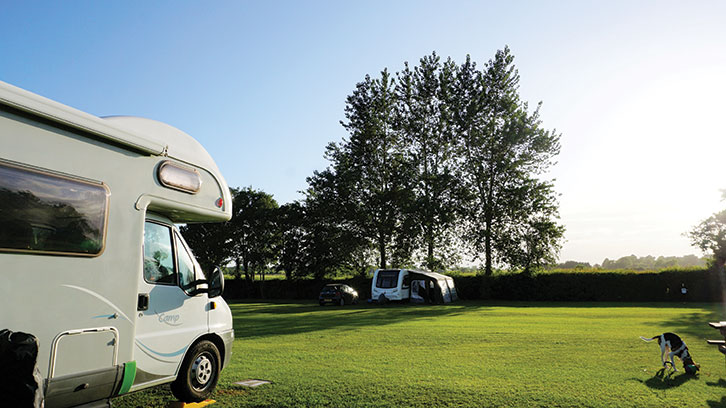
Then, when we wanted to go out and do some exploring, a short stroll along a footpath and the riverbank took us straight into the centre of town.
A king’s capital
Ro wasn’t wrong about the place being old, either. This medieval Wiltshire market town was granted a charter by Alfred the Great sometime around the year 880, just a couple of years after his disastrous episode with the cakes.
Happily for all concerned, he survived, and went on to have a son and a grandson. This grandson, Athelstan, became the first king of England and some believe he made Malmesbury his capital (Winchester also claims this distinction).
Whatever the truth or otherwise of this, it is certainly the case that Athelstan loved the town, reaffirmed its charter, and was buried here. The tomb in the Abbey, however, is empty – his burial place somewhere in the abbey grounds remains unknown.
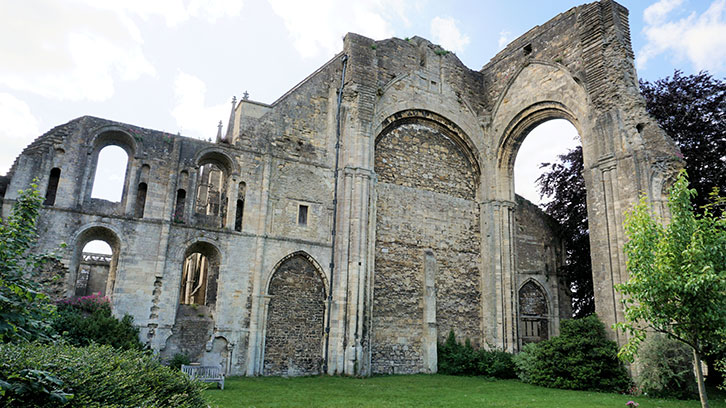
The abbey proved an interesting place to visit, with a history stretching back even further than Alfred, to its beginnings as a nunnery in the seventh century, in what was then just a fairly obscure hilltop Saxon settlement.
A few years later, a scholar by the name of Aldhelm became the abbey’s first Abbot. He is also credited with building the first organ in the country and after his death, went on to achieve posthumous fame as the first saint of Wessex.
Ro was right to say he had found us somewhere with a real past to explore.
Welcome break
All that history, as often happens with Ro and me, brought on a thirst, so we found ourselves relaxing and cooling off in the beer garden of the Rose & Crown, a pub on the high street that is friendly to both dogs and their human companions.
Suitably refreshed, we continued our stroll around town, taking in the Grade I listed market cross, charming local shops and the pretty park near the river.
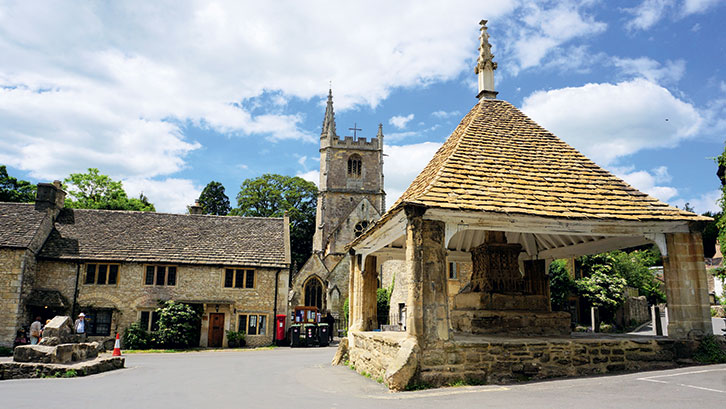
We also discovered another fascinating ‘first’ that this town lays claim to – around the year 1005, a monk named Eilmer tried to become the first human to fly!
Not entirely successful (unsurprisingly), he crash-landed into what is now Oliver’s Lane, but did make his way into the history books as the country’s first aviator.
Having had our fill of all these firsts, it was time to retreat to our pitch and relax in the early evening sunshine with a takeaway – it was a birthday celebration weekend away, so we felt justified in not cooking and took advantage of one of the picnic tables dotted around the site, while our dog, Willow, played on the grass.
Next morning, we took a leisurely drive to the nearby village of Castle Combe, which was recently voted the prettiest village in the UK (not for the first time) – and it is really easy to see why.
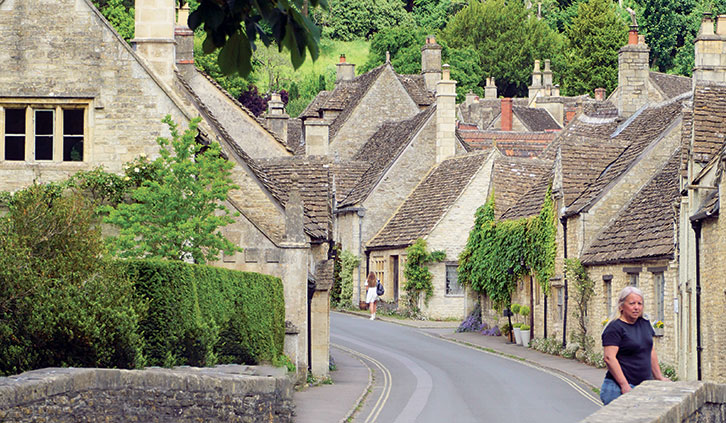
No new houses have been built here since at least 1660, many of the buildings are listed as ancient monuments, with strict building controls, and there are no streetlights, telegraph poles or TV aerials in the village conservation area.
This makes Castle Combe an ideal location for production companies, and it has featured in many films, notably Dr Dolittle, Stardust and War Horse, along with TV shows such as Poirot. We had fun imagining the actors strutting their stuff.
A river runs through it
We were delighted and surprised (they just kept coming that weekend!), mind you, to see that enterprising locals were selling homemade wares, including delicious cakes and honey, from small tables outside their cottages, with honesty boxes for payment. Village England at its finest.
The ‘castle’ of Castle Combe was built on the nearby hilltop in the Norman era, but no longer survives. The village, though, thrived, thanks in part to the Bybrook, which flows through it, and the huge number of sheep that grazed locally.
Mills were built on the watercourse, skilled weavers moved in, and a successful textile industry soon grew up. The village was granted the right to hold a weekly market – the market cross is still a focal point. Sadly, the mills are gone now.
The Bybrook, a tributary of the Avon, which virtually encircles Malmesbury, offers great walking opportunities. Over the bridge is a delightful woodland path, which splits away from the water and heads into the hills and along the valley – perfect for giving Willow a chance to stretch her legs and sniff out some local rabbits.
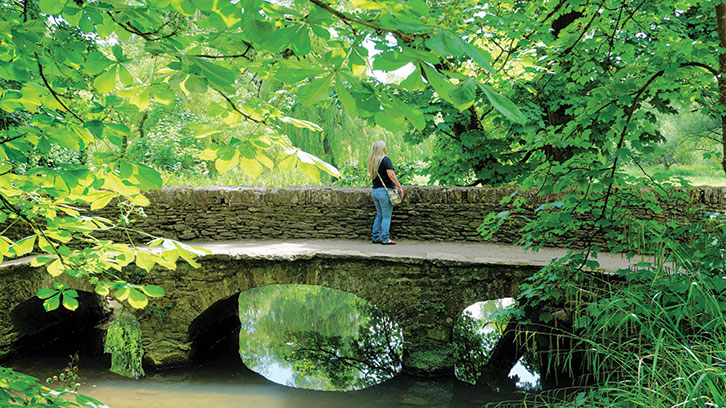
Explorations over, we still had plenty of daylight and summer weather, so we decided to drive back to our pitch in the opposite direction, making it a circular trip and briefly calling in at Badminton, famous for its horse trials and Badminton House, family seat of the Dukes of Beaufort.
A row of charming almshouses displays the Beaufort Badge and other coats of arms along the length of the high street, and sneaky views of the House itself pop up, although there is no public access without booking ahead. Gatehouses on the edge of the estate give you a sense of its grandeur.
On our way out that morning, we had come across Allington Farm Shop and called in for barbecue supplies, and sandwiches from their café, which we enjoyed in the sunshine on the banks of the Bybrook – and not to be left out, Willow tucked into a deer antler chew.
Back at base later, having feasted on farm shop burgers and chicken pieces cooked by the almost-birthday boy, we settled in for a relaxing evening, just sitting watching the sun go down and the stars come out and mulling over where to go next day, with the aid of my trusty map.
Hosting the world’s largest megalithic stone circle (but actually a circle within a circle) and with a pub in the centre, the village of Avebury is around 20 miles from our weekend base.
We have driven through Avebury a few times over the years and always said we’d love to spend a day there exploring, but it’s always so busy and difficult to park in such popular destinations. We decided this wasn’t the time: we didn’t need the stress during a birthday weekend.
The National Arboretum at Westonbirt is even closer, at just six miles away, but perhaps of more interest to us later in the year when its 15,000 or so trees are in all their colourful autumn glory.
Ancient history
The Uffington White Horse (a prehistoric hill figure formed from white chalk carved into the hillside) is within striking distance, and would have made an excellent walk, perhaps for a quick visit before we went home – we do like to stretch out our trips away as much as we possibly can.
Finally, we plumped for a visit to the largely National Trust-owned Lacock village and its abbey. Another town that really thrived on the wool industry, Lacock dates from the 13th century and is awash with half-timbered and stone buildings, with the splendid abbey itself at its heart.
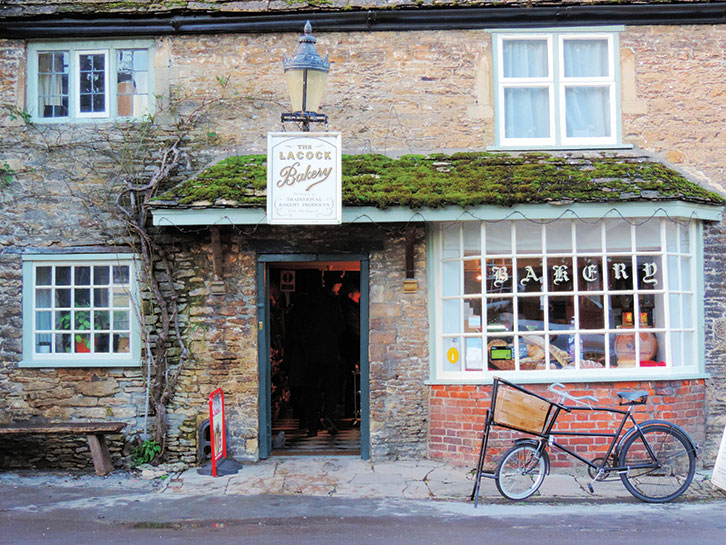
Converted to a country manor house following the dissolution of the monasteries in the 1500s, the abbey became home to William Henry Fox Talbot in the 1800s.
Now I hadn’t heard of this gentleman and was pleasantly surprised (I told you the surprises kept coming) to find that he was the originator of the very first photographic negative image made using a camera.
The technique he perfected became the basis of modern photography and because photography is one of my hobbies, I have much to be grateful to him for.
The abbey now houses a fine museum of photography, with fascinating displays that change throughout the year. The cloisters and gothic hallway are also worth a visit, and the grounds are perfect for a relaxing picnic in the sunshine.
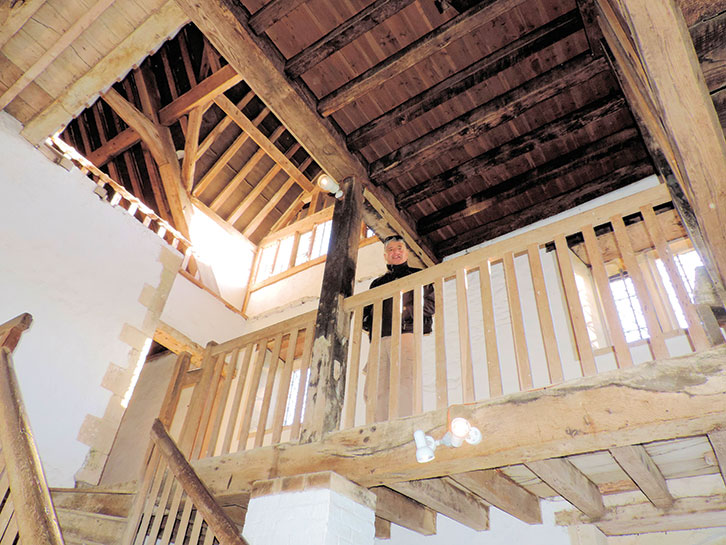
Here, too, are plenty of film and TV connections to spot, perhaps most notably in this case Harry Potter, and classics such as Emma and Pride and Prejudice. Fans of Downton Abbey will recognise parts of the village and the abbey, too.
Back at the campsite, we got changed before walking into Malmesbury for a drink in the beer garden at The Smoking Dog, and then it was time to enjoy that splendid birthday dinner in the oldest purpose-built hotel in England, The Old Bell.
We had daiquiris to start, then rump of lamb with a bottle of Pinotage. There was one pub in town we hadn’t visited, so we rounded off the celebrations with a quick visit to The Kings Arms as the sun set on Ro’s birthday and this surprise weekend away. Hats off to Ro for making it all happen, and happy birthday, husband!
Take a look at our guide to the best caravan parks in Somerset, Avon & Wiltshire if you’re after more ideas for where to stay in the region.
Where we stayed in Malmesbury
Burton Hill Caravan & Camping Park
01666 826 880
When to go to Malmesbury
This part of the world is gorgeous at any time of year, although these picturesque places are understandably very popular with visitors and can become extremely crowded during the peak summer months.
Way to go
Malmesbury is an easy drive from our Buckinghamshire home, and not far from the M4. Burton Hill made an ideal base for exploring.
Food and drink in Malmesbury
Find out more
- Visit Wiltshire
- Visit England
- Malmesbury Abbey
- Castle Combe
- Lacock Abbey, Fox Talbot Museum and Village
Lead image: Sue Taylor
Head to our Best of British: Touring Adventures section for more inspiration for your next trip.
If you’ve enjoyed reading this article, why not get the latest news, reviews and features delivered direct to your door or inbox every month. Take advantage of our brilliant Practical Caravan magazine SUBSCRIBERS’ OFFER and SIGN UP TO OUR NEWSLETTER for regular weekly updates on all things caravan related.
